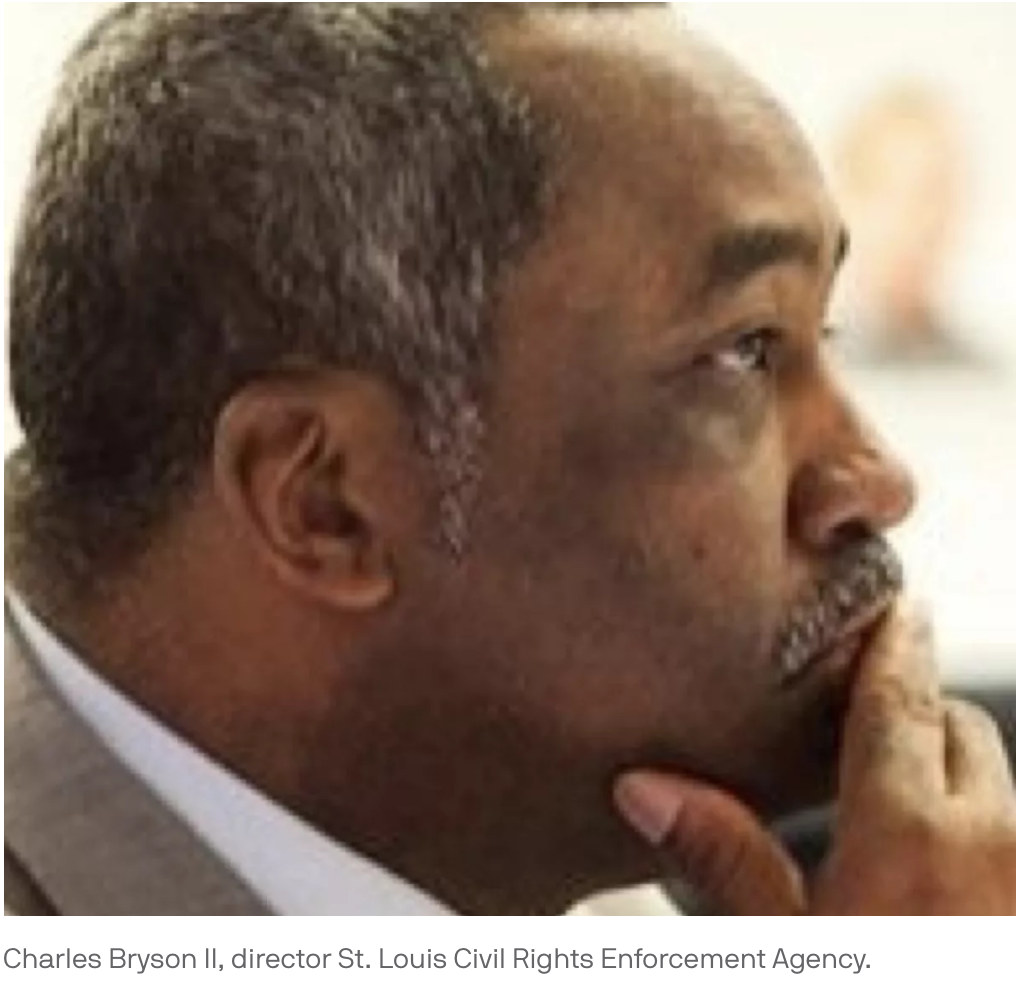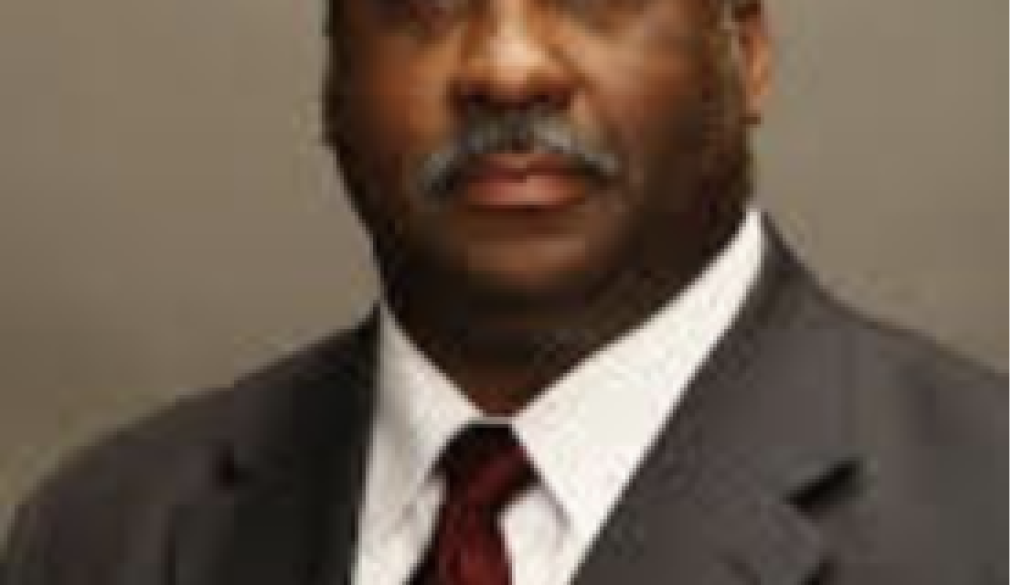Bryson, director of St. Louis’s Civil Rights Enforcement Agency, calls out companies that try to solve their issues by appointing directors of diversity and inclusion.

Charles Bryson, II, a native St. Louisan, has worked in and on behalf of marginalized communities for his entire professional career. Now, 62, Bryson is serving under his third mayor as director of the Civil Rights Enforcement Agency. Here in an interview with Richard Weiss, an editor with Before Ferguson Beyond Ferguson, he addresses the the region’s racial justice landscape, including a trend among businesses to appoint diversity executives to address longstanding workplace issues. The questions and answers have been edited for clarity.
Weiss: You have put in a lot years working in marginalized communities. What sent you in that direction? Something to do with your upbringing?
Bryson: I don’t think it was so much my youth. I think it was as a young adult. I have previously been involved in homeless services, which was an eye-opening experience for someone who grew up in both the city and the Lindbergh School District. Then I was director of a youth early childhood care program Head Start.
And so you hear a lot of stories about how people had difficulty in their lives and what may have led to how they got to be homeless. You get to see and hear their individual stories. Not necessarily civil rights, but about life in general. I think you just want to make sure that people have a fair shake in life.
Weiss: You mention growing up in both the city and St. Louis County. Tell us about how your family transitioned.
Bryson: I started out in the city of St. Louis. I went to Lexington Elementary. My sister graduated from Beaumont and the year that she graduated from Beaumont, we moved because my mom and dad who had very good jobs at the time could not get a loan to rehab the house we lived in, and so we moved to South County.
Weiss: Is that considered red lining?
Bryson: It was. Absolutely. My dad was a labor organizer with the Teamsters. My mom was a pharmacist. They both had good jobs, had good steady income. And when I look back, I think about the folks on the block, how the block was changing even before we left. Two doors down from us, they left the summer we were leaving. I don’t know the exact reason why. I know we left because we couldn’t get a loan to rehab the house.
Weiss: So even though you were middle class, two-parent family, you couldn’t escape systemic racism.
Bryson: No, we couldn’t
Weiss: Since you have a lifetime of experience working in this space, I am interested in your response to seeing so many companies putting somebody in charge of diversity and inclusion. Are you noticing that?
Bryson: Yes.
Weiss: What do you make of it? A good thing?
Bryson: Well, I think it’s somewhat ridiculous because it’s like you’re doing things on the back-end. If you are walking through the offices of your company, if you can’t tell that there’s no diversity, then you’re doing that conversation on the back-end. If you’re having a meeting of your staff and everybody looks exactly like you, whether that means they’re all male, whether it means they’re all white, that’s a problem.
You’re then asking somebody to come in when you’ve already made up your mind how you want your company to look. So to me, it is almost ridiculous to have that position because they’re a sideline. They are not part of HR so that they’re sitting at the table when you’re hiring somebody. They aren’t able to say, “This person has excellent qualifications, but if you wanted to diversify your business, you may want to pick this person over that person.”
But the mere fact that you have to hire somebody on the side not part of your hiring processes, it’s not part of your employment outreach, not part of your efforts to take your business out into the community, but a separate entity within your company to me says you’re not serious.
Weiss: What if some companies do it differently than you describe? he question For instance, a diversity and inclusion officer actually might be in HR and might be much more involved in hiring particular workers rather than in a job where that person does some trainings and maybe that person gets to sit in on some policy meetings, but is not integral. Are you seeing it that way? Are you noticing that most of these people are not integral?
Bryson: I’m not noticing them as a major part of the day-to-day operation. And I question diversity training. I question inclusion training. I’d rather see racial equity training. What part of your budget goes to racial equity?
Weiss: What are the key differences between diversity training and racial equity training?
Bryson: Racial equity at its heart is how you make sure your company reaches everyone. Someone needs to say, “By the way, based on your advertising, your audience is going to be white, suburban, upper middle income people. Maybe you need to change the language. Maybe you need to change the people so that you reach a greater audience.” Also, how do we make sure that minorities have the ability to sell to me? That may not always come across in diversity.
Weiss: And diversity training, at least in my own mind, is more about how do we walk in the world and treat people in a respectful way…
Bryson: As an individual. And when I leave diversity training, have I learned racial equity?
Weiss: Moving to another topic, do you think that the landscape has shifted here in St. Louis with the election of Tishaura Jones, the first black female mayor?
Bryson: Yes, but we should pause and say she’s only been in office a short time. There’s a lot of people who because she won are going to put an amazing amount of demands on her, some of which just can’t be done in 100 days even on a national level.
The budget is in some respects hers, in some respects is not. And I say that because there are things that she can do through the Board of Estimate and Apportionment right now, but there are other things that wil take time because they’ve grown up over time. So we need to support her efforts to change the city, but not force her into a corner to do some of those things that have been festering for years, for decades.




